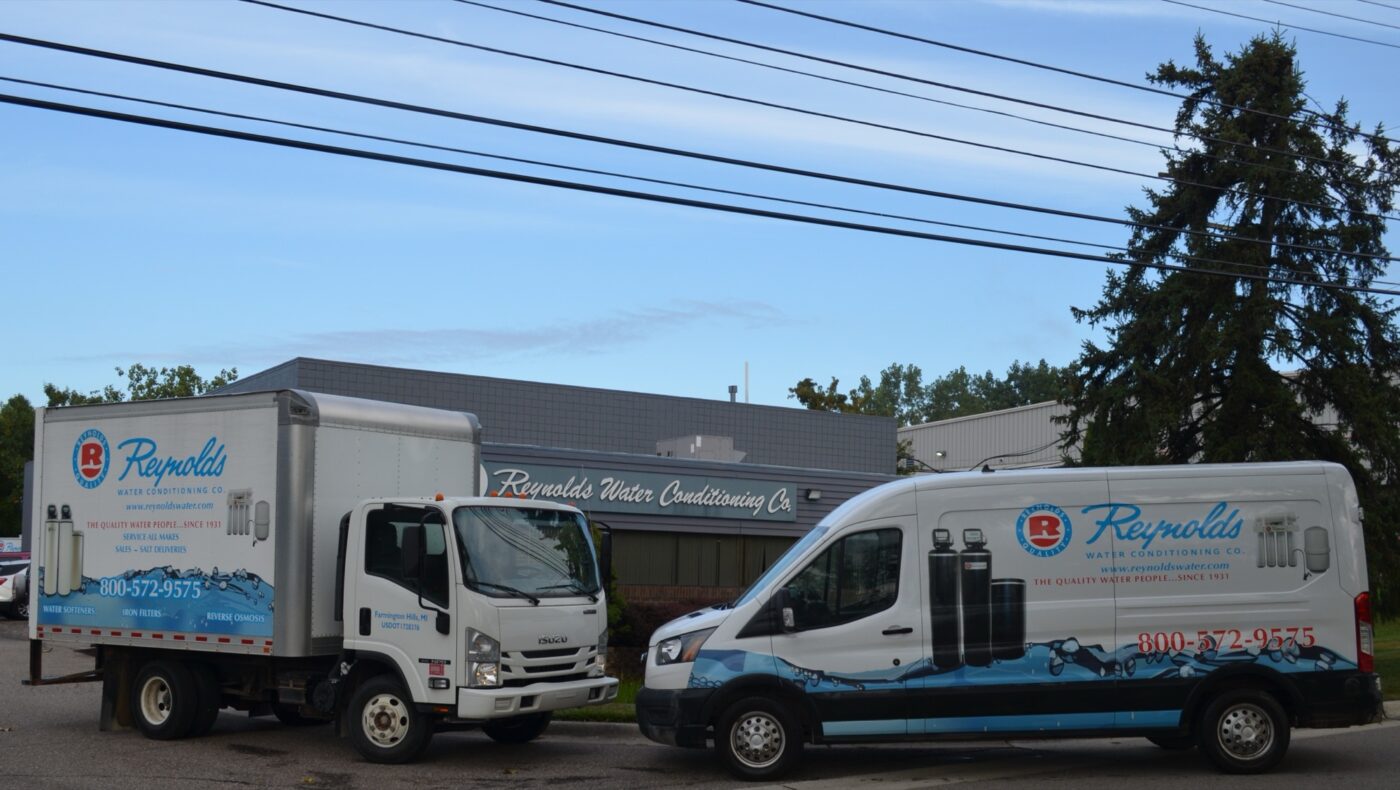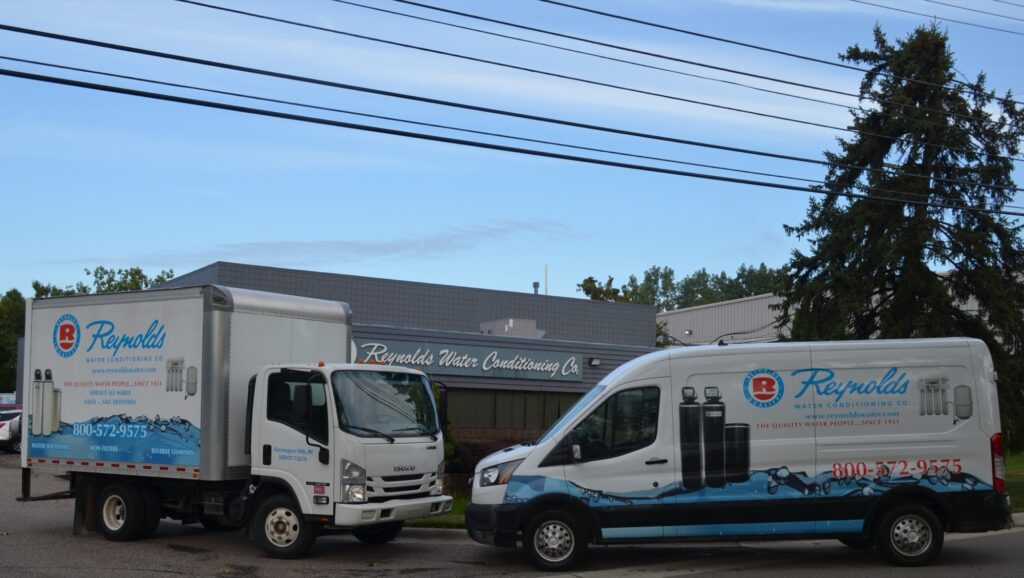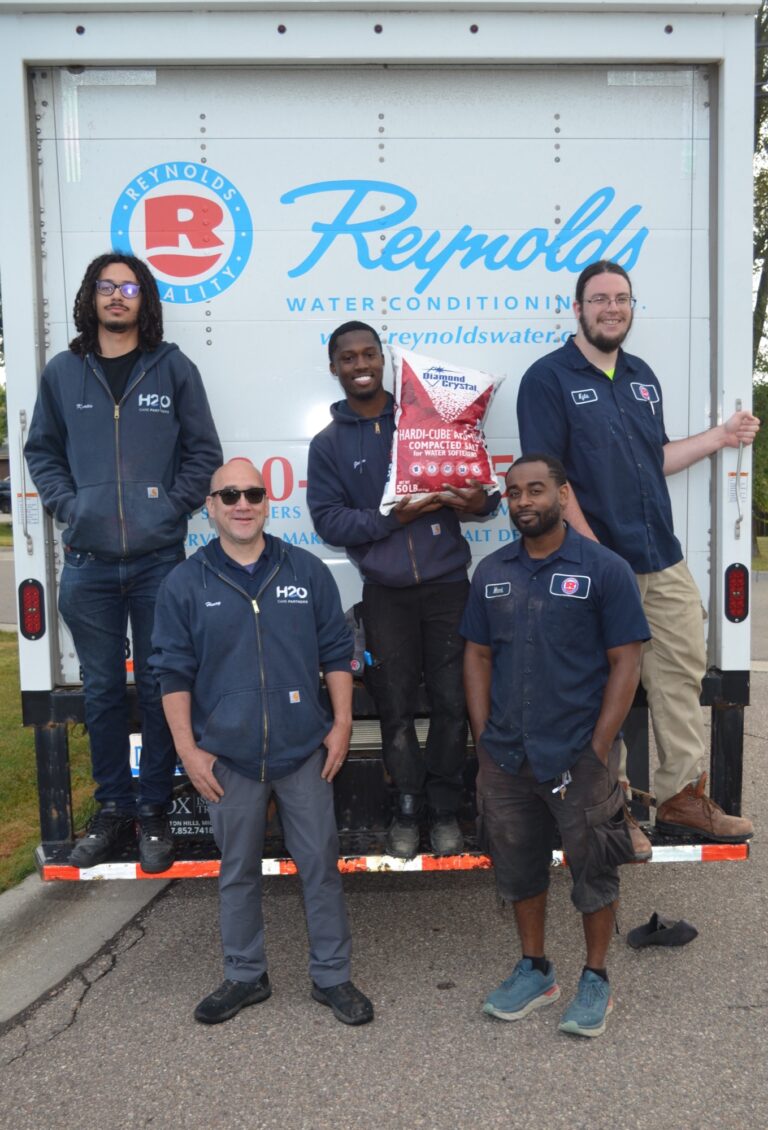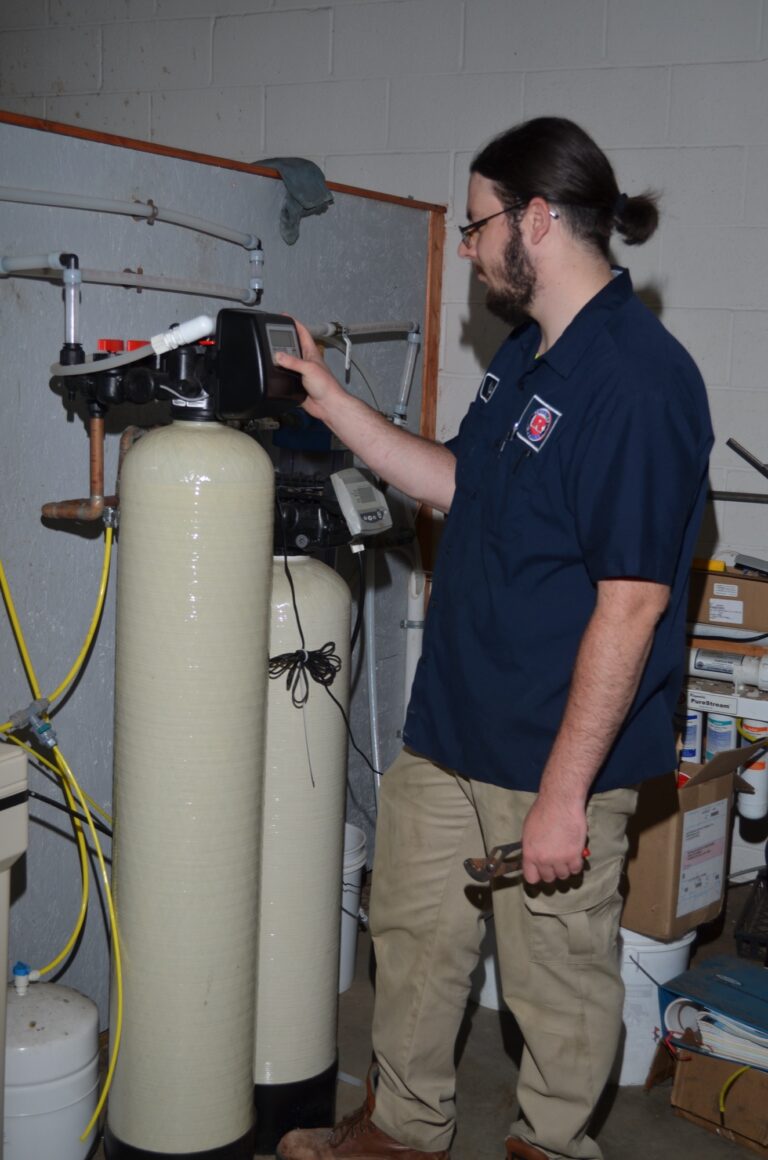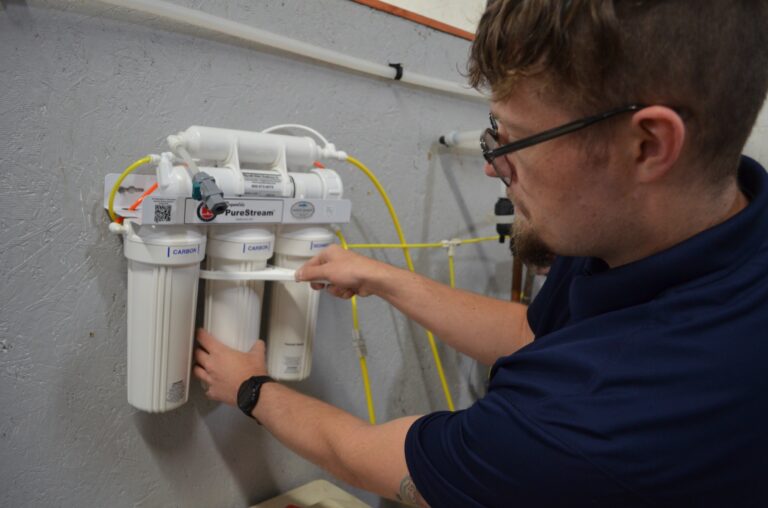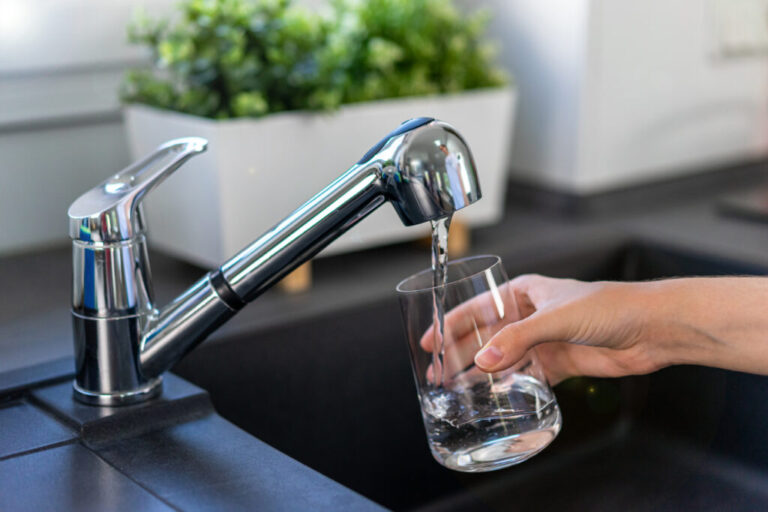
Service Areas
Reynolds Water Conditioning Co. has proudly delivered reliable water solutions across Michigan for decades. We serve customers from Ann Arbor to Birmingham, MI. View our service areas to see where we’ve helped families and businesses improve their water quality.

Why Choose Reynolds for Water Conditioning in Michigan?
For over 90 years, our Michigan water treatment company has helped homeowners and businesses solve hard water issues, remove contaminants, and achieve superior-quality water. As an experienced water filtration company, we combine certified expertise with personalized solutions for every water quality challenge.
When you choose us, you benefit from:
- Trusted experts in water softening and filtration
- Free in-home water testing and custom recommendations
- Solutions for city and well water
- Residential and commercial services
- Professionals educated on common water problems in Michigan
Water Testing & Personalized Recommendations
Every effective water treatment plan starts with testing. Our professionals analyze your water’s mineral content and contaminants to design the best solution for your household or business. We offer both free water testing and advanced lab testing for a fee. No guesswork, just real results.
Comprehensive Water Filtration
Not all water problems are the same, which is why our solutions are always tailored to the contaminants in your supply. Our drinking water systems can remove sediment, chlorine taste, iron, arsenic, and more.
At Reynolds, water for Michigan residents is what we specialize in. That’s why we offer many different types of filtration and treatment equipment to meet all your needs:
- Whole-house water filtration systems
- Water softeners and conditioners
- Reverse osmosis (RO) water filtration
- Iron filters
- Lead removal filters
- UV sterilization and specialized filters
Enjoy clearer, better-tasting water with custom filtration solutions!
System Installation & Maintenance
Reynolds is a water softener company that provides complete system installation, maintenance, and repair. Whether you’re upgrading your system or need service on an existing one, our experts deliver reliable solutions, including:
- Custom water filtration installation
- Preventive maintenance to ensure consistent performance
- Professional repairs and tune-ups
- Filter replacements and system inspections
- Bottle-less water cooler services
Expert installation and routine service help ensure you have clean water every day, without interruptions. Contact us to schedule your water quality analysis!
Frequently Asked Questions
-
How can I tell if I have hard water?
Water hardness is indicated by mineral buildup in water heaters, pipes, and on plumbing fixtures. You will also see soap scum on dishes and shower doors, and staining in sinks, toilets, and bathtubs. Laundry will feel stiff and rough and may look dingy. You will also notice that soap and detergents don’t clean as effectively.
The best way to tell if you have hard water is with a water test. Our professionals at Reynolds can come to your property, test your water, and help you understand your water quality.
My water doesn’t taste good, but it tested okay. What does this mean?
Water issues can be categorized into two types: primary problems, which are dangerous, and aesthetic problems, which influence the taste, appearance, or smell of water. You could have an aesthetic problem (such as excess iron) without your water being dangerous to drink.
Should I be concerned about sodium in water?
If sodium is a concern for you, you may question whether you should install a water softener. One of our water quality professionals can explain the amount of sodium that comes with softened water. The amount usually varies, depending on the hardness of your water supply.
Municipal water supplies contain natural sodium. If your sodium-restricted diet is very strict, you may benefit from an RO system. If you need a softener, you may choose one that uses potassium chloride instead of sodium.
What is softened water?
Softened water is water that has had most of its hard minerals, mainly calcium and magnesium, removed. They are replaced with small amounts of sodium or potassium after water softener treatment.
Trusted by Michigan Families for Generations—Because Service Still Matters

